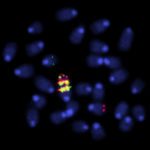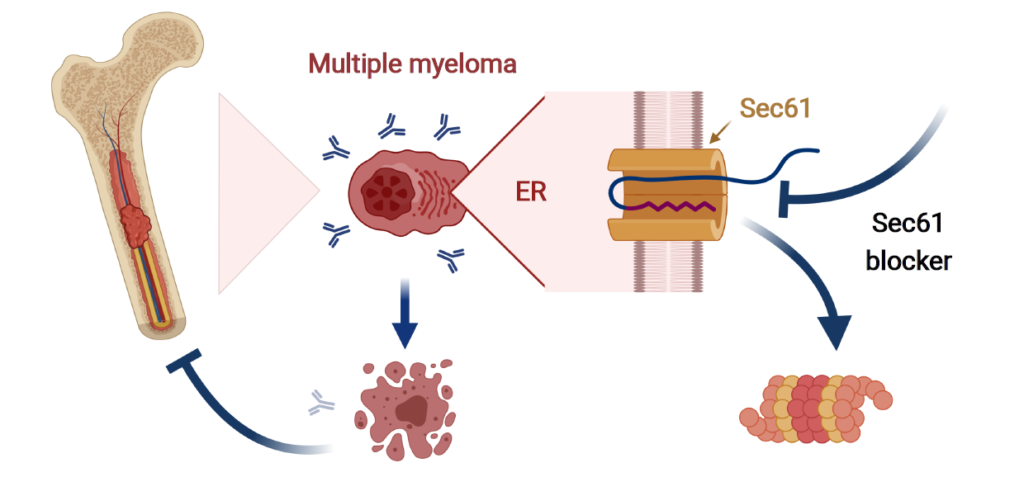The study of the Buruli ulcer caused by Mycobacterium ulcerans led Caroline Demangel and her team to mycolactone, a toxin secreted by the pathogen. They’ve recently discovered that mycolactone operates by inhibiting the mammalian translocon (Sec61), thus blocking the import of proteins into the ER, diverting them to the proteasome for degradation. In this new paper published in EMBO Mol Med, they explore the therapeutic potential of mycolactone in multiple myeloma (MM), a hematopoietic cancer sensitive to proteotoxic stress. In murine models and patient-derived MM tumors, they showed that mycolactone induces apoptosis in cancerous cells more efficiently than in normal cells and its action synergizes with bortezomib, a proteasome inhibitor currently used to treat MM, even in resistant cells. Blocking Sec61 is thus deemed of therapeutic interest for MM.
Source
The Sec61 translocon is a therapeutic vulnerability in multiple myeloma. EMBO Mol Med, 11 January 2022.
To read the article: here
To read the press release: here







